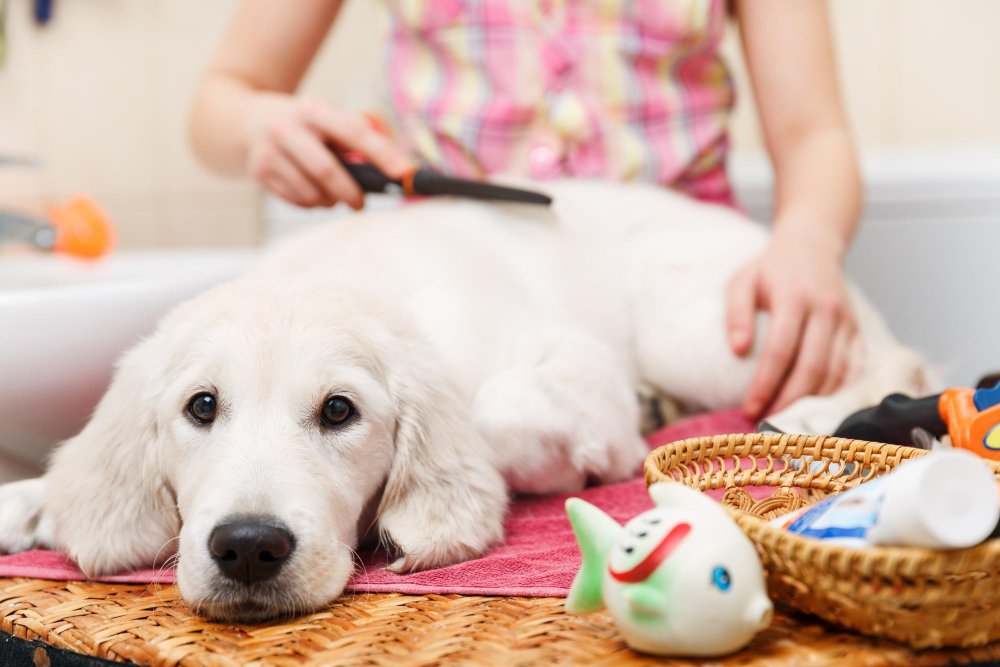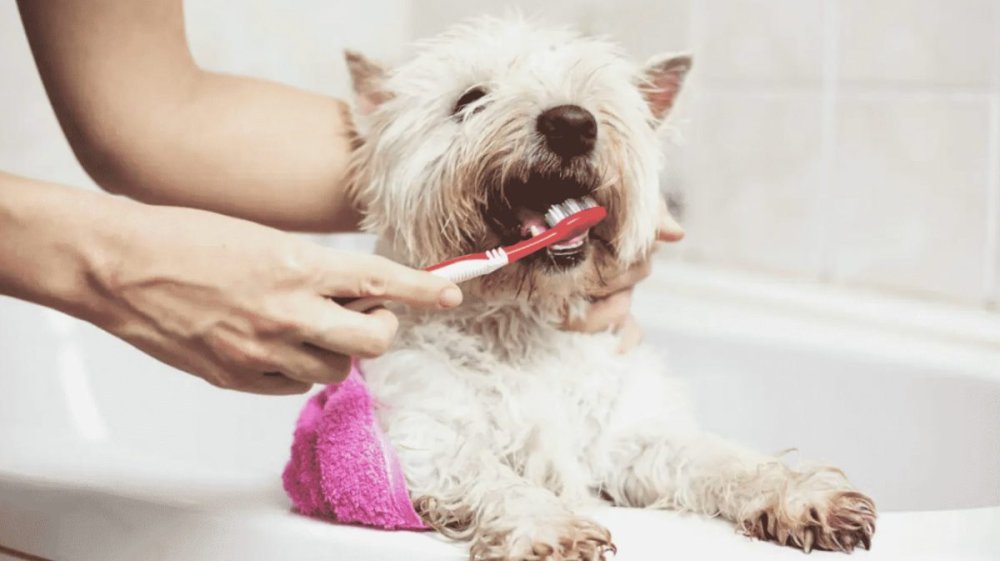Ever found yourself overwhelmed by the sheer energy of a new puppy? You’re not alone. Many new dog owners quickly realise that owning a dog is more than just cuddles and playtime. It’s a commitment that involves time, patience, and a bit of know-how. This article is here to guide you through the essentials of dog ownership, helping you understand what to expect when caring for your new furry mate. From daily walks to vet visits, and training sessions to feeding routines, we’ll cover the responsibilities that come with welcoming a dog into your life. Whether you’re a first-time owner or considering adding a dog to your family, this guide will prepare you for the rewarding journey ahead.
Choosing the Right Dog

Factors to Consider When Selecting a Breed
Choosing the right dog breed is like picking a new best mate. You want to make sure they fit your lifestyle. Are you active and love the outdoors? Maybe a Border Collie or Labrador is your match. Prefer a quieter life? A Bulldog or Basset Hound might be more your speed. Think about your living space too. Big dogs need room to roam, while smaller breeds can thrive in apartments.
Understanding Breed-Specific Needs and Characteristics
Every breed has its quirks. Some dogs are high-energy and need lots of exercise, while others are more laid-back. Researching breed-specific traits can save you a lot of hassle down the road. For instance, Huskies are known for their love of running, so they need a secure yard. Meanwhile, Pugs are prone to breathing issues, so they need a bit more care in hot weather.
Adoption vs. Buying from a Breeder
Deciding between adoption and buying from a breeder is a big choice. Adoption gives a dog a second chance and can be more affordable. Plus, shelters often have mixed breeds, which can be healthier and have unique personalities. On the other hand, buying from a reputable breeder can ensure you know the dog’s history and health background. Whichever path you choose, make sure it aligns with your values and lifestyle.
Preparing Your Home for a New Dog

Essential Supplies for a New Dog
Before your new dog arrives, make sure you have the basics covered. You’ll need a comfy bed, food and water bowls, and a good supply of dog food. Don’t forget a collar, leash, and some toys to keep them entertained. A crate can also be handy for training and providing a safe space.
Creating a Safe and Comfortable Environment
Your home should be a haven for your new mate. Remove any hazards like loose wires or small objects they might swallow. Set up a designated area where they can relax and feel secure. This could be a corner of the living room or a quiet spot in the kitchen. Make sure it’s away from any draughts or direct sunlight.
Introducing Your Dog to Their New Home
When you bring your dog home, let them explore at their own pace. Keep things calm and quiet, and give them time to adjust. Show them where their bed, food, and water are. Gradually introduce them to different rooms and family members. Patience is key here; let them settle in and feel at home.
Basic Care and Maintenance

Daily Care Routines
Looking after your dog involves a few daily tasks that quickly become second nature. Feeding is a big one. Make sure you’re giving them a balanced diet suited to their age and size. Fresh water should always be available. Then there’s walking. Most dogs need at least one good walk a day, but some breeds might need more. It’s not just about exercise; it’s a chance for them to explore and socialise. Grooming is another essential. Regular brushing keeps their coat healthy and reduces shedding. Plus, it’s a great bonding time.
Importance of Regular Vet Check-Ups
Regular vet visits are crucial for keeping your dog in top shape. These check-ups help catch any potential health issues early. Your vet can also give advice on diet, exercise, and any breed-specific concerns. It’s a good idea to schedule these visits at least once a year.
Vaccinations and Preventative Health Care
Vaccinations are a must to protect your dog from common diseases. Your vet will guide you on the right schedule. Preventative care doesn’t stop there. Flea and tick treatments, along with regular worming, are essential to keep your dog healthy and happy. A little effort here goes a long way in ensuring your dog’s well-being.
Training and Socialisation

Importance of Early Training and Socialisation
Getting your dog started with training and socialisation early on is crucial. It sets the foundation for a well-behaved and confident pet. Puppies are like sponges; they soak up everything around them. Introducing them to different environments, people, and other animals helps them grow into well-adjusted adults. The earlier you start, the better.
Basic Commands and Obedience Training
Teaching basic commands like sit, stay, and come is essential. These aren’t just party tricks; they’re vital for safety and communication. Consistent training sessions, even if they’re just a few minutes a day, can make a big difference. Use positive reinforcement like treats and praise to encourage good behaviour. Remember, patience is key.
Socialising with Other Dogs and People
Socialisation isn’t just about meeting other dogs. It’s about exposing your pup to a variety of experiences. Take them to parks, introduce them to friends, and let them experience different sounds and sights. This helps reduce fear and anxiety, making them more adaptable and friendly. A well-socialised dog is a joy to be around and makes outings more enjoyable for everyone.
Exercise and Play
Daily Exercise Requirements for Different Breeds
Every dog needs exercise, but the amount varies by breed. High-energy breeds like Border Collies and Huskies thrive on long walks and vigorous play. They need at least an hour or more of exercise daily. On the other hand, breeds like Bulldogs or Pugs are more laid-back and might be content with a couple of short walks. It’s important to match your dog’s exercise needs with their breed characteristics to keep them healthy and happy.
Types of Activities and Games Dogs Enjoy
Dogs love a variety of activities. Fetch is a classic favourite, perfect for burning off energy. Tug-of-war can be a fun bonding game, while agility courses challenge both their mind and body. For water-loving breeds, swimming is a fantastic option. Even a simple walk can be an adventure with a bit of exploration and sniffing around.
Benefits of Mental Stimulation and Play
Play isn’t just about physical exercise; it’s crucial for mental stimulation too. Engaging your dog’s brain with puzzle toys or training sessions can prevent boredom and reduce behavioural issues. Mental challenges keep their minds sharp and can be just as tiring as a long walk. Plus, playtime strengthens the bond between you and your dog, making it a win-win for both of you.
Nutrition and Diet
Understanding Your Dog’s Nutritional Needs
Feeding your dog isn’t just about filling a bowl. It’s about understanding their nutritional needs. Dogs require a balanced diet with the right mix of proteins, fats, carbohydrates, vitamins, and minerals. The right diet supports their energy levels, coat health, and overall well-being. Puppies, adults, and senior dogs all have different dietary requirements, so it’s important to adjust their food as they grow.
Choosing the Right Food and Feeding Schedule
Picking the right food can feel overwhelming with so many options out there. Look for high-quality dog food that lists meat as the first ingredient. Avoid fillers like corn and soy. Consider your dog’s age, size, and activity level when choosing their food. As for feeding schedules, consistency is key. Most dogs do well with two meals a day, but puppies might need more frequent feeding.
Foods to Avoid and Potential Dietary Issues
Not all foods are safe for dogs. Chocolate, grapes, onions, and certain nuts can be toxic. Always check with your vet if you’re unsure about a particular food. Be mindful of potential dietary issues like allergies or sensitivities. If your dog shows signs of digestive upset or skin problems, it might be time to reassess their diet. Regular vet check-ups can help catch these issues early.
Health and Wellbeing

Common Health Issues in Dogs
Dogs, like us, can face a range of health issues. Some common ones include ear infections, skin allergies, and dental disease. Larger breeds might experience joint problems, while smaller ones can have dental issues. Being aware of these can help you spot problems early.
Signs of Illness and When to See a Vet
Keep an eye out for signs like changes in appetite, lethargy, or unusual behaviour. Vomiting, diarrhoea, or coughing can also be red flags. If your dog seems off, it’s better to be safe and consult your vet. Early intervention can make a big difference.
Tips for Maintaining Your Dog’s Health
- Regular exercise keeps them fit and mentally stimulated.
- Feed a balanced diet tailored to their age and size.
- Keep up with vaccinations and preventative treatments.
- Brush their teeth and groom them regularly.
- Schedule annual vet check-ups to catch any issues early.
Grooming and Hygiene

Basic Grooming Routines
Keeping your dog clean and well-groomed is a must. Regular bathing helps remove dirt and odours, but don’t overdo it—too much can strip their coat of natural oils. Brushing is key, especially for long-haired breeds, to prevent tangles and mats. Nail trimming is another essential task. Long nails can be uncomfortable and even lead to health issues, so keep them in check.
Dealing with Shedding and Seasonal Grooming Needs
Shedding is a part of life with dogs, but you can manage it. Regular brushing helps control loose fur and keeps your home cleaner. Some breeds shed more during seasonal changes, so be prepared for extra grooming during these times. A good vacuum cleaner can be your best friend here.
Dental Care and Ear Cleaning
Don’t overlook dental care. Regular brushing with dog-friendly toothpaste can prevent plaque build-up and bad breath. Dental chews can also help. Ear cleaning is important too, especially for breeds prone to ear infections. Use a vet-recommended cleaner and check for any signs of irritation or infection.
Final Thoughts
Owning a dog is a rewarding yet demanding journey. It requires dedication, understanding, and a willingness to adapt to your dog’s unique needs. From choosing the right breed to mastering training and nutrition, each step is crucial in fostering a healthy, happy relationship with your pet. Embrace the challenges and joys of dog ownership, and remember that your efforts will lead to a lifetime of companionship and love. As you embark on this journey, stay informed and proactive in providing the best care for your furry friend.
